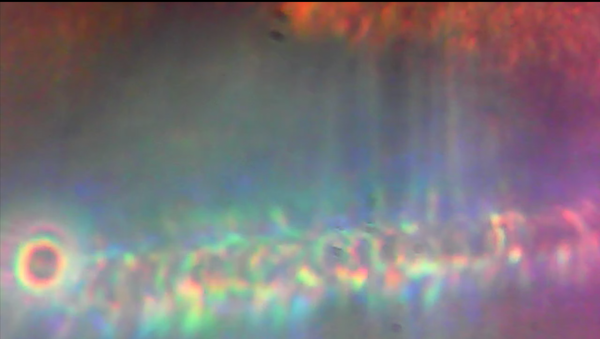Do it yourself bio-robotics: Difference between revisions
No edit summary |
m (Hd-onions moved page DIY steps bio-robotics to Do it yourself bio-robotics) |
||
| (29 intermediate revisions by 3 users not shown) | |||
| Line 1: | Line 1: | ||
=== Recognizing a plant in a pinch === | A reversible modification for a webcam which lets you take pictures of things far less than 1mm wide. | ||
To make the microscope webcam you need the following: | |||
* Standard webcam with an adjustable focus-lens | |||
* Computer | |||
'''Step 1''' - Dismantle the webcam cover | |||
'''Step 2''' - Detached the lens of the webcam. Often this optical lens part is partially glued to the front of the webcam but it can be detached by twisting firmly. | |||
'''Step 3''' - Put the lens, up side down, back on the webcam | |||
'''step 4''' - Connect the webcam to the computer | |||
'''step 5''' - To focus, just move the webcam towards or away from the object | |||
'''Movie bio-robotics''' | |||
[[File:Screen-Shot-2015-10-22-2.png|600px|Still from bio-robotics movie]] | |||
A screenshot of the movie created with the DIY microscope by Jona Andersen, Juriaan Boerman and Mark-Jan Tellingen during the workshop. | |||
The video can be seen here [https://youtu.be/iB5cnaERx9c youtu.be/iB5cnaERx9c] | |||
===Recognizing a plant in a pinch=== | |||
by [[James Bryan Graves]] | by [[James Bryan Graves]] | ||
When asked to assist how to quickly recognize a plant with a webcam I | When asked to assist how to quickly recognize a plant with a webcam I remembered an Apple WWDC presentation called "Find my iCone" an app that tracked an orange construction pylon using it's color. | ||
I already had some web/Javascript code to do some chromakey (greenscreen) swapping, so I just re-purposed it. However, tracking the correct color of say "purple flowers" needed to be a little less fined grained then #ef0114 (for example, I have no idea what "color" that is by looking at it's hex values), so I grabbed a [http://chir.ag/projects/ntc/ JS library] to print colors as words. | I already had some web/Javascript code to do some chromakey (greenscreen) swapping, so I just re-purposed it. However, tracking the correct color of say "purple flowers" needed to be a little less fined grained then #ef0114 (for example, I have no idea what "color" that is by looking at it's hex values), so I grabbed a [http://chir.ag/projects/ntc/ JS library] to print colors as words. | ||
| Line 15: | Line 41: | ||
<body> | <body> | ||
<video id='v'></video> | <video id='v'></video> | ||
<h1>I don't see anything.</h1> | |||
<canvas id='c'></canvas> | <canvas id='c'></canvas> | ||
<script> | <script> | ||
| Line 143: | Line 169: | ||
</body> | </body> | ||
</html> | </html> | ||
Latest revision as of 11:51, 16 December 2015
A reversible modification for a webcam which lets you take pictures of things far less than 1mm wide.
To make the microscope webcam you need the following:
- Standard webcam with an adjustable focus-lens
- Computer
Step 1 - Dismantle the webcam cover
Step 2 - Detached the lens of the webcam. Often this optical lens part is partially glued to the front of the webcam but it can be detached by twisting firmly.
Step 3 - Put the lens, up side down, back on the webcam
step 4 - Connect the webcam to the computer
step 5 - To focus, just move the webcam towards or away from the object
Movie bio-robotics
A screenshot of the movie created with the DIY microscope by Jona Andersen, Juriaan Boerman and Mark-Jan Tellingen during the workshop.
The video can be seen here youtu.be/iB5cnaERx9c
Recognizing a plant in a pinch
When asked to assist how to quickly recognize a plant with a webcam I remembered an Apple WWDC presentation called "Find my iCone" an app that tracked an orange construction pylon using it's color.
I already had some web/Javascript code to do some chromakey (greenscreen) swapping, so I just re-purposed it. However, tracking the correct color of say "purple flowers" needed to be a little less fined grained then #ef0114 (for example, I have no idea what "color" that is by looking at it's hex values), so I grabbed a JS library to print colors as words.
Here's the code:
<!DOCTYPE html>
<h1>I don't see anything.
